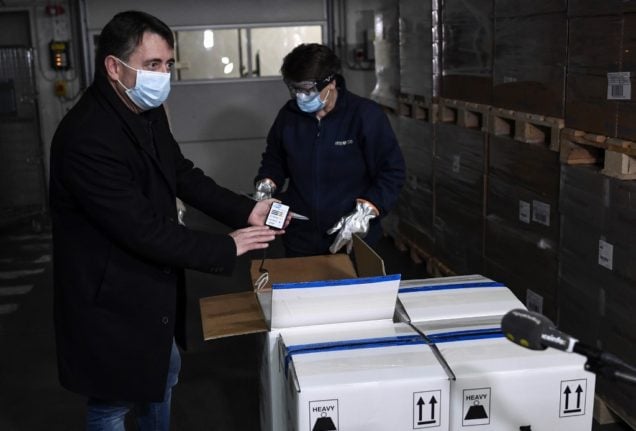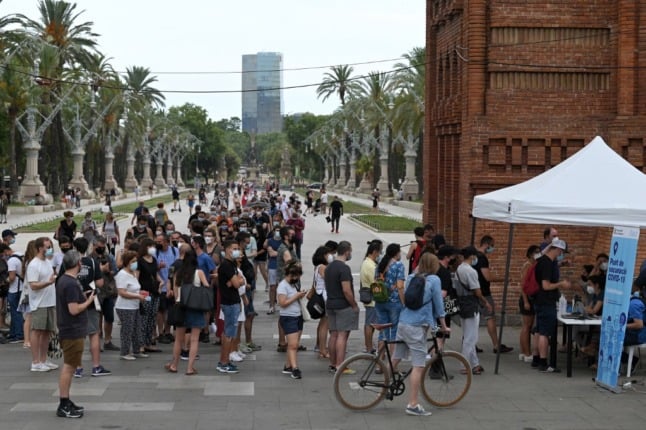VACCINE
France has received its first delivery of the Pfizer vaccine
France's first doses of the Pfizer-BioNTech coronavirus vaccine were delivered early Saturday to the Paris hospital system's central pharmacy outside the capital, an AFP journalist saw.
Published: 26 December 2020 08:55 CET

Franck Huet (L), head of the hospital pharmacy division of the AP-HP (Paris Hospitals) opens a boxe of Pfizer-BioNTech Covid-19 vaccines. Photo: Stephane De Sakutin/AFP
After more than 62,000 Covid-19 deaths in France, shots are set to begin with people in two elderly care homes on Sunday, the same day the rest of the EU begins injections.
A refrigerated truck brought the roughly 19,500 doses from the Pfizer factory in Puurs, northeast Belgium, to Paris, the capital's APHP hospital authority said, with pharmacy chief Franck Huet calling it a “historic” moment in the pandemic.
After repackaging in Paris, the vaccines will be delivered to a long-term care unit at a hospital in Sevran, outside the capital, and an old-age care home in Dijon, in eastern France.
The first EU deliveries come after the European Medicines Agency (EMA) gave the Pfizer-BioNTech shot its green light on Monday and France's HAS health authority in turn on Thursday.
Countries are especially eager to begin their vaccination campaigns as a new strain believed to be more infectious spreads from Britain. A first case was identified in France on Friday.
But large-scale inoculations for residents and staff in France's 7,000 elderly care homes will not begin until early 2021.
Url copied to clipboard!


 Please whitelist us to continue reading.
Please whitelist us to continue reading.
Member comments